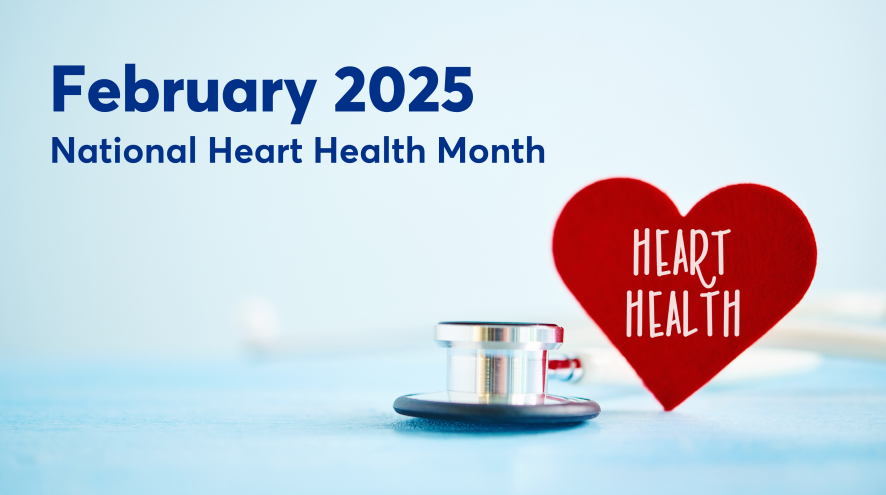February is National Heart Health Month
Learn how heart health can help reduce your risk of dementia.

Heart Month is an important time to raise awareness about cardiovascular health and the importance of reducing your risk of heart disease. It also offers an opportunity to reflect on ways to improve your overall health, which can help lower your risk of dementia and enhance your well-being.
What is heart health?
Heart health refers to the overall well-being of your heart and cardiovascular system. This includes the heart, blood vessels, and blood flow. It is also about maintaining the heart’s ability to pump blood effectively and ensure the blood vessels remain clear and free from blockages. As you know, good heart health is crucial for delivering oxygen and nutrients throughout the body, including the brain.
Forms of heart disease may increase your risk of dementia if not properly managed. Reducing your risk of heart attack and stroke along with managing blood pressure, cholesterol and diabetes, are all important aspects of heart health that will improve your over-all well-being and reduce your risk of dementia.
High blood pressure (hypertension):
- Makes the heart work too hard and can hurt blood vessels, raising the risk of heart problems and stroke.
Cholesterol:
- Too much cholesterol can block blood flow in the heart, increasing the risk of heart attacks or strokes.
Diabetes:
- High blood sugar can damage the heart and blood vessels, leading to heart disease and strokes.
Circulation:
- Good blood flow is important for a healthy heart. Poor blood flow can cause heart problems and raise the risk of heart attack and stroke.
Why heart health matters.
There are 12 known risk factors for dementia, and one of them is high blood pressure.
People with high blood pressure have a higher risk of developing dementia because it impacts the heart, arteries, and blood flow. Over time, high blood pressure can harm blood vessels, decreasing blood flow to the brain. This reduced circulation can contribute to cognitive decline and raise the risk of dementia. When the brain doesn't get enough oxygen and nutrients, its function can suffer.
Vascular dementia is caused by damage to the brain from poor blood flow, often due to heart or blood vessel issues, or internal bleeding. Blocked blood vessels prevent oxygen and nutrients from reaching the brain, increasing the risk of stroke and vascular brain damage.
Stroke is now understood to be a common cause of vascular dementia. If the blood flow is not restored within a few minutes, the damaged neurons begin to die. Having a stroke more than doubles the risk of developing dementia.
How to maintain heart health.
Maintaining heart health involves several factors, including:
Regular Exercise:
- Physical activity strengthens the heart muscle, improves circulation, and helps control weight.
Healthy Diet:
- Eating a balanced diet rich in fruits, vegetables, whole grains, lean proteins, and healthy fats can help prevent plaque buildup in the arteries.
Managing Stress & Improve Sleep:
- Chronic stress can contribute to heart problems and disrupt sleep, so it’s essential to find effective ways to manage it. Incorporating relaxation techniques and physical activity into your daily routine can help lower stress levels and improve sleep quality.
Not Smoking:
- Smoking damages blood vessels and increases the risk of heart disease.
Monitoring Blood Pressure and Cholesterol:
- Keeping blood pressure and cholesterol levels in check reduces the risk of heart attack and stroke.
Maintaining a Healthy Weight:
- Being overweight or obese can put extra strain on the heart.
By adopting a heart-healthy lifestyle, you can reduce your risk of heart disease and improve your long-term health.
If you are looking for more information on heart health, vascular dementia and how to lower your risk, our education team is here to provide information and support. You can contact us by email at [email protected], or by calling 905-576-2567.
